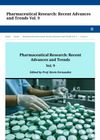Search
for
Sort by
Research
90-120 / 1000+ results
research Treatment of Moderate-to-Severe Alopecia Areata in Patients Over the Age of 65 With Baricitinib
Baricitinib helps treat severe hair loss in people over 65.
research Baricitinib Therapy for Moderate to Severe Alopecia Areata: A Retrospective Review of 95 Japanese Patients

research Treatment of Moderate-to-Severe Alopecia Areata in Adolescents With Baricitinib: A Retrospective Review of 29 Patients
Baricitinib helped most teenagers with severe hair loss regrow hair and had mild side effects.

research Treatment of Moderately Severe Virilism of Women with Diane and Androcur 10
Diane and Androcur 10 improved acne and seborrhea in most women, and hirsutism and alopecia in about half.

research Androgenetic Alopecia: Modern Concepts of Pathogenesis and Treatment
Hair can regrow if the sebaceous gland is intact, even if the hair root is removed.

research A Randomized Placebo-Controlled Single-Center Pilot Study of the Safety and Efficacy of Apremilast in Subjects with Moderate-to-Severe Alopecia Areata
Apremilast was not effective in treating moderate-to-severe alopecia areata.
research Topical Calcipotriol Therapy for Mild-to-Moderate Alopecia Areata: A Retrospective Study
Calcipotriol cream can effectively and safely treat mild-to-moderate patchy hair loss.

research Profile of Tofacitinib Citrate and Its Potential in the Treatment of Moderate-to-Severe Chronic Plaque Psoriasis
Tofacitinib citrate is effective for moderate-to-severe chronic plaque psoriasis but has safety concerns at higher doses.
research Low-Dose IL-2 for Treating Moderate to Severe Alopecia Areata: A 52-Week Multicenter Prospective Placebo-Controlled Study Assessing Its Impact on T Regulatory Cell and NK Cell Populations
The study's results on the effectiveness of low-dose IL-2 for alopecia areata and its impact on immune cells were not provided.
research High-Resolution Stable Isotope Profiles of Modern Elephant (Loxodonta Africana) Tusk Dentin and Tail Hair from Kenya: Implications for Identifying Seasonal Variability in Climate, Ecology, and Diet in Ancient Proboscideans
Elephant tusks and hair reveal seasonal diet and climate changes.
research Towards Grizzly Bear Population Recovery in a Modern Landscape
Grizzly bear conservation success requires public support and understanding of scientific findings on population monitoring and habitat impact.

research Nail Involvement in Patients with Moderate-to-Severe Alopecia Areata Treated with Oral Tofacitinib
Tofacitinib improves nail conditions in patients with severe hair loss and does not affect hair regrowth.

research Oral Tofacitinib and Systemic Corticosteroids, Alone or in Combination, in Patients With Moderate-to-Severe Alopecia Areata: A Retrospective Study
Both individual and combined treatments of tofacitinib and corticosteroids can help regrow hair in moderate-to-severe alopecia areata, but ongoing treatment may be necessary.
research Efficacy Observation on Mild to Moderate Active Systemic Lupus Erythematosus Treated with Compound Zishenqing Formula
The compound zishenqing formula is effective and safe for treating mild to moderate systemic lupus erythematosus.

research Efficacy and Safety of Dupilumab in Adolescent Patients with Moderate-to-Severe Atopic Dermatitis
Dupilumab is effective and safe for treating moderate-to-severe atopic dermatitis in adolescents.

research Baricitinib for the Treatment of Moderate-To-Severe Alopecia Areata
Baricitinib helps regrow hair in severe alopecia areata and is safe, but more research is needed.

research Adiantum Capillus-Veneris Linn (Maidenhair Fern) Reported by Ibn Rushd: Traditional Use and Modern Application - A Review Article
Maidenhair fern has traditional and modern uses for treating hair loss and other health issues.
research Exosomes Derived Stem Cells as a Modern Therapeutic Approach for Skin Rejuvenation and Hair Regrowth
Exosomes from stem cells may help rejuvenate skin and regrow hair, but more research is needed.

research Comparative Efficacy and Safety of JAK Inhibitors in the Treatment of Moderate-to-Severe Alopecia Areata: A Systematic Review and Network Meta-Analysis
Brepocitinib 30mg is most effective for moderate-to-severe alopecia areata, but ritlecitinib 50mg may offer a better balance of safety and effectiveness.

research Effectiveness and Safety of Baricitinib in Patients With Moderate-to-Severe Refractory Alopecia Areata in Real World: An Open-Label, Single-Center Study
Baricitinib effectively and safely improves hair growth in patients with severe alopecia areata.

research Effectiveness of Oral Tofacitinib Treatment on Patients With Moderate-to-Severe Alopecia Areata in Iran
Tofacitinib is effective and has minor, reversible side effects for treating severe hair loss in Iran.

research Efficacy and Safety of Fractional CO2 Laser Combined with Halometasone Cream for Treatment of Moderate-to-Severe Chronic Hand Eczema: A Prospective, Single-Center, Parallel-Group, Open-Label Randomized Trial
Using fractional CO2 laser with halometasone cream works better for chronic hand eczema than just the cream, improving symptoms and quality of life with fewer relapses.

research Role of Observation for Excisionally Biopsied Moderately Dysplastic Nevi with Positive Histologic Margins and Risk of Future Melanoma Development
Watching, not removing, skin growths with moderate atypia and positive edges is okay; patients may get melanoma elsewhere, especially if they've had it before.

research Oral Ruxolitinib Induces Hair Regrowth in Patients with Moderate-to-Severe Alopecia Areata
Ruxolitinib effectively regrows hair in most patients with severe hair loss.
research Applications of the Regenerative Capacity of Platelets in Modern Medicine
PRP therapy shows promise in healing and tissue repair across various medical fields but needs more research for standardization and optimization.

research Oral Tofacitinib Monotherapy in Korean Patients with Refractory Moderate-to-Severe Alopecia Areata: A Case Series
Tofacitinib is effective and safe for treating severe hair loss in Korean patients.
research Efficacy and Safety of Methotrexate Combined with Low- to Moderate-Dose Corticosteroids for Severe Alopecia Areata
Methotrexate with corticosteroids can effectively treat severe alopecia areata but often requires long-term maintenance.

research Combination of Low-Dose Isotretinoin and Pulsed Oral Azithromycin in the Management of Moderate to Severe Acne
Low-dose isotretinoin combined with pulsed azithromycin cleared acne in most patients, with mild side effects.
research Properties of Skin Stem Cells and Their Potential Clinical Applications in Modern Dermatology
Skin stem cells can help treat many skin diseases without invasive procedures.